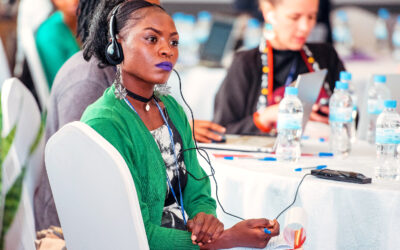The U.S. can make history by leading the charge to eradicate human trafficking – if political will and funding are provided to support America’s strong talk against modern slavery, says Free the Slaves Executive Director Maurice Middleberg.
“The next president of the United States will have the opportunity to become the great emancipator of the 21st century, by asserting U.S. leadership and galvanizing global action against slavery. This committee could help pave the path,” Middleberg told the Senate Foreign Relations Committee this morning.
“While no one openly supports slavery, sustained, intense political support is needed that does not flinch when competing priorities emerge,” he added.
Middleberg’s comments came during a hearing on the End Modern Slavery Initiative Act, which would substantially increase resources for combating slavery at home and abroad. He noted that the modern abolition movement has awakened the world that slavery still exists and has developed a wide range of solutions that can squeeze slavery into extinction from different directions. What’s needed now, is funding to get the job done.
“The most important barrier to progress against slavery is the diminutive scale of the response,” he said. “The anti-slavery movement is fighting a raging elephant with a pop gun.”
“We have the experience and the knowledge to make a difference, but not the resources. This is a great tragedy. We are holding a slavery vaccine that we cannot deploy,” he said.
See video of the hearing here. Read his full written remarks to the committee here.
Middleberg’s comments about a slavery “vaccine” resonated with the committee’s chairman, Sen. Bob Corker (R-TN). His committee has unanimously passed the End Modern Slavery Act and included $25 million in pilot funding in the federal budget to match public and private resources being invested in anti-trafficking programs. He says the world needs a game-changing approach.
“What we find each year, is that people come before us looking for incremental help in dealing with this issue,” he said. “And yet, we want to address this issue not unlike we did HIV/AIDS, where we pull the world together to end modern slavery.” Corker was referring to America’s PEPFAR program, which mobilized funding for AIDS relief in Africa, suggesting a similar approach could work to combat trafficking.
“We have to do everything we can to end this,” added Sen Ben Cardin (D-MD).
Middleberg was joined at the speaker’s table by Sen. John McCain (R-AZ) and Cindy McCain of the McCain Institute – as well as two trafficking survivors, Evelyn Chumbow, and a survivor who works with the A21 campaign, Leah.



